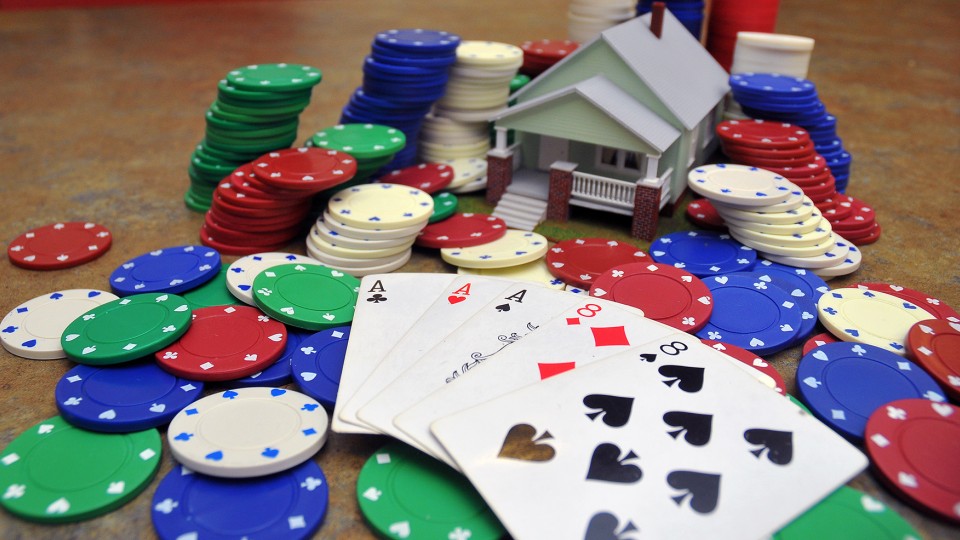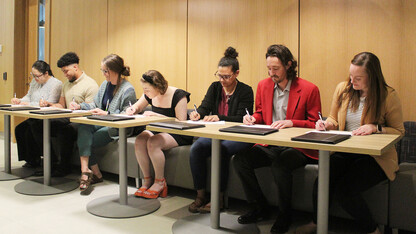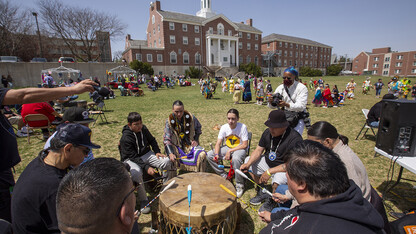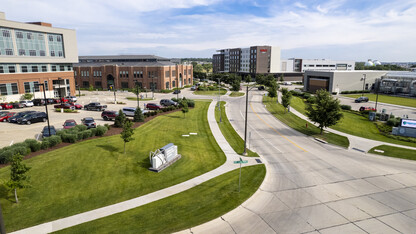· 4 min read
Duncan’s book explores societal rise of poker, gambling

The American Dream is shifting. No longer just a vision of a house, a family and a good life earned from hard work, now the dream includes stocks, bonds, the latest gizmos and gadgets and building a wealth portfolio as quickly as possible.
The prevalence of acquiring wealth rather than creating it has given rise to get-rich-quick schemes, housing bubbles that burst and the hedge fund industry.
In his new book, “Gambling with the Myth of the American Dream,” UNL scholar Aaron Duncan explores how changes in society have also given way to a significant rise in gambling – a boom, he says, that’s not going bust anytime soon.
“In the 1980s, you could really only gamble in Las Vegas and Atlantic City,” said Duncan, an assistant professor of practice in the Department of Communication Studies. “Now, 48 states have some form of legalized gambling, the average American lives within 100 miles of a casino and over half of Americans have been in a casino in the last 90 days. There’s also internet gambling and there’s even been discussion of making sports betting legal online.”
In the book, forthcoming later this month and published by Routledge, Duncan focuses specifically on the rise in popularity of poker, a game of luck, risk and skill. Duncan said he began questioning why poker was so popular in 2003 when the World Series of Poker and its winner, Chris Moneymaker, set ESPN ratings records.
“Why had this game become so ubiquitous, so popular?,” he said. “Why was it something that had been around for literally more than 100 years, but for the first time ever, we’d really gotten interested in watching it? When I started really looking into it, I realized that gambling as a whole had proliferated so much in the 25 years.”
Duncan traces the rise in gambling to several societal developments. A central idea he researches and draws connections to is a concept developed by German sociologist Ulrich Beck that claims we now live in a “risk society,” where globalization, technology and mass media have caused us to constantly perceive and analyze risk in everything, from our retirement funds to global terrorism.
This preoccupation with risk, Duncan said, has allowed gambling to become normal, along with changes in politics and the economy. Duncan said the evolution of the myth of the American Dream has also changed the way society thinks of gambling.
“I’m not saying these changes have caused a cultural shift, but rather they reflect a more accepting attitude of gambling,” Duncan said. “Gambling is now seen as less immoral and less out-of-step with the American Dream. Increasingly, the idea of the American Dream is more about winning the lottery than it is about hard work.
“When you look around and see Ponzi schemes and fortunes disappearing overnight, the average American goes, ‘Well gosh, if the stock market is a gamble and the housing market is a gamble, what’s wrong with just straight gambling?’”
Duncan suggests that there are pros and cons to the rise in gambling and the societal changes they reflect.
“On the one hand, this new version of the American Dream de-emphasizes work ethic as a path to success and places greater emphasis on luck and risk management,” he said. “The positive is that this new American Dream includes greater recognition of the inequalities present in American life. In a poker tournament, we all start with the same amount of chips and in life, this does not happen. So there is greater recognition of systemic inequalities. The game of poker is also honest about the dishonesty inherent in the game and gambling as a whole, explicitly recognizes that the odds are stacked against the average person. If more and more Americans feel like the odds are stacked against them outside the casino too, gambling will continue to flourish.”








